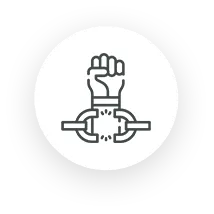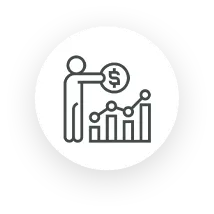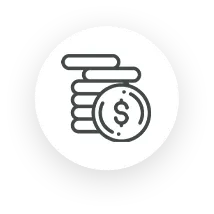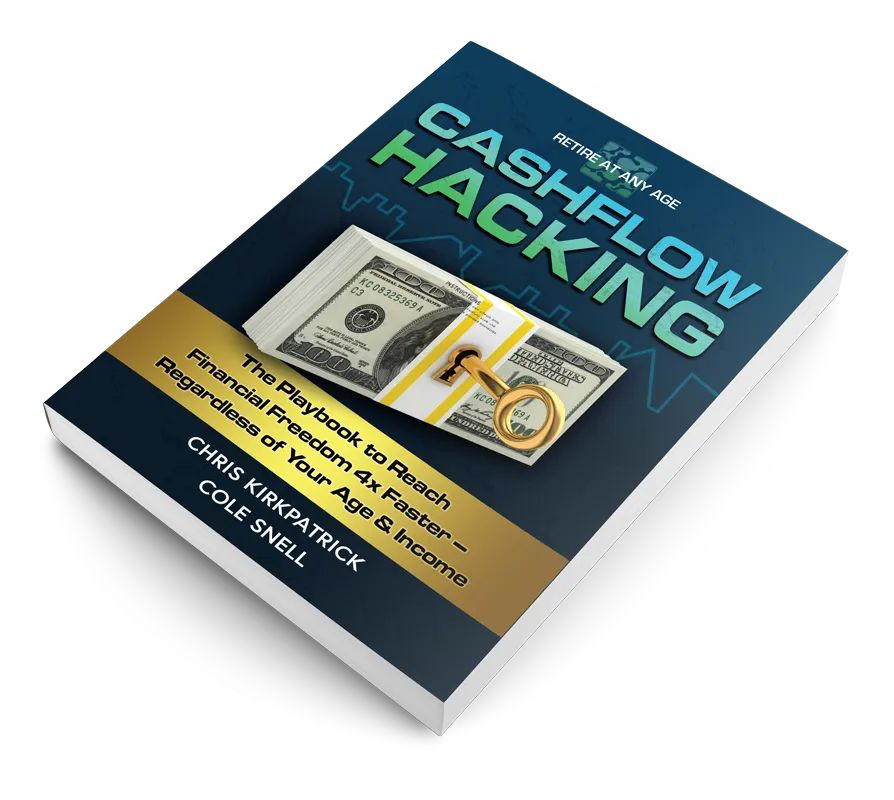
Simplifying Financial Confusion
LEARN CASH FLOW HACKING TO REACH FINANCIAL FREEDOM
Used by 90% of millionaires to reach their financial goals 4x faster

Achieve Financial Freedom Through Cash Flow Hacking

Increase Your Lifestyle While You Build Your Wealth

Position Yourself to Thrive in Market Downturn
YOU SHOULD NOT FEEL OUT OF CONTROL ABOUT YOUR FINANCIAL STRATEGY

Have easy access to your money in case of emergencies and opportunities

Use the investment strategy 90% of millionaires use

You deserve a clear plan to consistently grow your money and avoid market uncertainty

Have a guide and advisor that has your best interest in mind

Do not overpay in taxes

Stop guessing at the best vehicles to protect and grow your money

Infinite Banking Concept | Run Your Personal Finances Like A Business
This article is a written adaptation of the video you can find on our YouTube channel, LIFE180.
Unfortunately, much of the information available regarding how the average American family manages their personal finances and plans for their financial future and retirement isn't necessarily helping them progress toward their goals.
One of the approaches I adopted with cashflow hacking was taking a step back to ponder how the most successful individuals in the world attain their achievements. Who better to learn from about success than those who are leading companies?
I've always been a proponent of the notion, “You need to run your personal finances like a business”.
At the end of the day, I realized that I hadn't fully grasped what it truly meant to manage personal finances like a business. While I understood concepts like running a profit and loss statement, it wasn't until recently, when I delved into discussions about corporate finance, that I truly connected the dots.
By observing what leads to success in corporate finance, I was able to bridge the gap and have an epiphany regarding its correlation to personal finance. This understanding illuminated why many conventional approaches to personal finance are flawed.
Moreover, it highlighted how cash flow hacking aligns with these principles to promote success. By applying strategies from corporate finance, one can optimize personal finances more effectively, ensuring better financial health and stability.
Implement Corporate Finance Principles In Your Personal Finances
We are discussing personal finance and what to do with your money, considering it in terms of managing your personal life and finances the same way you would manage business finances.
In the past, I've created articles and videos on this topic, discussing how to run a personal profit and loss statement and maintain a monthly budget, essentially managing it in the same way you would run a business.
But now, I'm delving even deeper, discussing the underlying principles.
I had a conversation with Garrett Gunderson the other day, and we discussed the idea of learning corporate finance principles and applying them to your personal life. So, I began to dive deeper into what that meant. In the process, I created an image that I felt truly aligned with the principles I was discussing.
Minimize image
Edit image
Delete image

LIFE180
There are four main stages in corporate finance: capital budgeting, capital structure, dividend distribution, and working capital requirements. These are the essential components to consider when structuring business finances.
As I mentioned, I've often discussed the importance of having a budget and managing your household like a business. However, we haven't delved into how this approach is specifically implemented across different phases and components of financial structure. I love talking about financial structure, but I realize that sometimes people hear me and find the concept unclear or abstract.
I often use the LIFE180 Pyramid to explain how to structure your life with safe money as the foundation. I believe this analogy is crucial and easily understood by everyone. However, I think this new visualization will be very helpful, starting with capital budgeting.
Capital Budgeting and Building An Emergency And Investment Opportunity Fund
In the corporate finance world, capital budgeting means determining the funding requirements of the business. It involves assessing what kind of funding is needed and judging the feasibility and profitability of investment decisions.
This means we won't invest just for the sake of investing. Instead, we'll seek out and identify the best opportunities. This approach is crucial and ensures that investments are made thoughtfully and strategically.
Why is it that in personal finance, we're often taught to simply buy and invest, relinquishing control and entrusting our money to someone else who supposedly knows better? That's the prevailing idea: to give up control and rely on others for financial decisions.
In personal finance, when it comes to capital budgeting, let's prioritize saving the necessary capital for emergency funds and investment opportunities.
That's akin to determining the funding needs. Here, it means saving the necessary capital for emergencies and investment opportunities. Then, exercising patience to identify the best investment prospects.
Sometimes, I feel like the plan doesn't effectively land when I communicate it to people. My wife often says I'm thinking and speaking at a thousand miles an hour, making it hard for others to keep up.
But ultimately, what I'm talking about is the idea of being patient. It's not just about investing for the sake of it; it's about safeguarding our money, accumulating capital, and then strategically identifying and deploying it.
That's our aim. And that's precisely what capital budgeting entails. It's a critical aspect of corporate finance, but how do we translate it into our personal finances? That's where the LIFE180 Pyramid comes in. It's another method of discussing the principles I emphasize within the LIFE180 Pyramid.
If you haven't seen the LIFE180 Pyramid video yet, I highly recommend checking it out after you finish reading this article.
Capital Structure and Building A Personal Reserve Account
Now, let's talk about capital structure. This term is integral to my discussions, particularly regarding whether to opt for debt, equity, or a combination of both. Typically, this decision is crucial in the launch of a company, determining how the business is structured overall.
Similarly, in our personal lives, we must consider how to structure ourselves for success. Whether in corporate finance or personal finance, whether you opt for debt, equity, or a combination, this decision significantly impacts success, influencing leverage, timeframes, expectations, and risk-reward ratios. There's no denying its importance.
In my book, Cashflow Hacking, I discuss the concept of a private reserve account. This involves utilizing a specially designed whole life insurance policy as a foundational asset in your life. It offers the opportunity for safe leverage, thereby enhancing your investment possibilities.
The reason I'm passionate about this approach is because it offers unique advantages. However, it's important to note that you don't necessarily need to use a whole life insurance account. You could opt for saving in a traditional savings account instead. While this may not provide the same level of leverage, control, protections, and growth opportunities, it's still a viable option. I don't want to make it sound like this is the only path to financial success.
You have several options available. You could invest in term insurance to ensure your human life value. You could also invest in municipal bonds or leverage loans against them. Additionally, you can explore cashback loans through a bank. There are numerous avenues to consider.
While you don't necessarily need a private reserve account, which is a whole life policy, I firmly believe it can significantly enhance your financial strategy. Based on available information, a properly designed whole life insurance policy serves as an excellent source of safe leverage. This aligns with the concept of capital structure when launching a business.
We're discussing capital structure as a means to establish the foundation of your life, enabling you to leverage safely and pursue the best investment opportunities. This approach fosters good investment practices, steering you away from speculation and towards sound investment strategies.
Dividend Distribution And Cash Flow
In corporate finance, dividend distribution involves determining whether to distribute dividends or retain profits as retained earnings.
In personal finance, as discussed in Cashflow Hacking, the objective is to enhance our net worth through the capital structure using a private reserve account. It's essential to consider the human life value and invest in net worth accordingly. From there, the focus shifts towards building cash flow.
In this context, cash flow in personal finance operates similarly to dividends. When structured this way, we equate dividends with cash flow. The crucial decision lies in determining the most effective utilization of this cash flow.
I firmly believe in reinvesting cash flow, akin to reinvesting dividends, rather than treating them as income. The goal is to work towards our freedom number and attain financial freedom at a faster pace.
That's ultimately our goal. I hope you're recognizing the correlation between corporate finance and personal finance and how cashflow hacking, along with the utilization of these tools, assets, and structures, can significantly enhance your journey towards financial success.
Have Your Financial Plan Get You Closer To Your Goals
Working capital requirements are crucial. In corporate finance, it's about managing capital for daily operations. Similarly, in personal finance, while managing assets and cash flow is important, it must be done with a clear goal in mind.
In business, goals are usually clear-cut. Profitability, timeframes, and objectives are well-defined, often discussed among boards and C-suite executives. Key performance indicators (KPIs) are established to measure success. However, in personal finance, many individuals lack clarity. They may struggle to articulate their goals and objectives, leading to a sense of uncertainty.
The great news is that we can reverse engineer this process. By starting with a clear understanding of our goals, we can work backwards to determine how to achieve them. If we prioritize cash flow and structure our lives accordingly, financial freedom and complete financial independence can be within reach in the next 10 years or even less.
I know it might sound overwhelming, but trust me, the concept of managing your money and structuring your financial life is remarkably simple and straightforward. It's accessible to everyone, and I believe it's a responsibility we all have. By adopting this approach, you put yourself at the center of your own success. Why relinquish control of your money to a money manager when you can take charge of it yourself and manage it like a business would?
It's curious, isn't it? In corporate finance, businesses are taught how to be successful and take control of their results. Yet, when it comes to personal finances, the narrative often seems to suggest that individuals are incapable of figuring it out themselves.
They're told they're not smart enough, not capable enough, and should simply hand over their money to someone else who supposedly has their best interests at heart. This notion doesn't make sense to me. Why should individuals relinquish all responsibility for their financial success and future?
Consider it in terms of corporate finance. How do you structure your life financially? Start with the end in mind: define your timeframe and envision your desired lifestyle. Then, calculate the capital budgeting required to achieve those goals. Establish your emergency fund and opportunity fund, structuring them properly. Determine where and how to leverage, whether through personal or business debts, or real estate, to accomplish your objectives.
As you build cash flow, consider how you'll manage it. Will you reinvest it, take it as distributions or earnings, or manage loans? It's essential to have a plan for managing your finances effectively as your cash flow grows.
Ultimately, by following this approach, you'll not only achieve your financial goals but also learn to manage life along the way. I hope this perspective resonates with you. If you have any questions or comments, feel free to reach out and leave them in the comment section below. Your feedback is valuable to me.
It's great that you took the time to put this together and work through it. Sometimes, organizing our thoughts visually can provide clarity and help us better understand complex concepts. Keep exploring and refining your ideas, it's a valuable process.
It's commendable that you're exploring and evolving your understanding of financial structure. Sharing your insights through visual aids can indeed make complex concepts more accessible to others. Your commitment to helping others understand is admirable, and I'm sure your efforts will resonate with many.
If you found value in this, please consider sharing it with others. Also, don't forget to visit our YouTube channel LIFE180, subscribe, and hit the bell icon to receive notifications whenever a new video is posted. Your support is greatly appreciated!
Until next time, have a blessed and inspirational day.
HOW TO START TAKING CONTROL OF YOUR FINANCES BY MAXIMIZING YOUR CASH FLOW AND PROTECTING YOUR ASSETS

1. Schedule Your Free Clarity Call

2. Create a Free Customized Plan

3. Get Guide to Financial Success
GET YOUR FREE COPY TO STOP USING OUTDATED RETIREMENT STRATEGIES
Cash Flow Hacking teaches you to:
Protect Your Investments
Thrive in bad markets
Reach financial freedom faster

ARE YOU LOOKING FOR:

Cash Flow Hacking teaches you to:
Security to protect your money
Increased cash flow and lifestyle
Inflation protection
Financial certainty in all economic environments
A reduction in taxes
Safe and fast access to your money with no penalties
WHO IS THIS PROGRAM FOR?

People looking for an alternative
Are you looking for alternatives to Wall Street’s “buy and hold” strategy that takes 40 years with uncertain results? Our Cash Flow Hacking strategies provide you the building blocks to get started on the right foot

Passionate Entrepreneurs
Are you looking for a financial strategy that will take your best assets (you and your businesses) and multiply their potential? Our Cash Flow hacking strategies will teach you how to invest for the future without sacrificing building your business

Real Estate
Investors
Are you a real estate investor who is burned out from being a landlord or playing the fix-and-flip game? Our Cash Flow Hacking strategies will provide you with the system to create predictable wealth AND give you the freedom you are looking for.
YOU DESERVE PEACE OF MIND AND A PLAN THAT WILL PROTECT YOUR FAMILY AND GROW YOUR WEALTH
Today you need to be more savvy than ever if you try to go at it alone.
Losing money to inflation, taxes, and just poor investment strategies is leaving you frustrated, feeling out of control and not knowing where to turn. To add to the problem, the market is flooded with advisors who have outdated advice that does not place your best interests first, but instead focuses on charging you a fee that creates guaranteed cash flow for them.
NOT YOU
We believe this is wrong and that your security and best interests should be placed first. We believe you should be in a position where you control your money, your money doesn't control you. We understand because we talk with hardworking people everyday that are losing money in the markets based on old information and feel like they are guessing at the best course of action.
We created the Cash Flow Hacking plan to help you have security and control of your money to take advantage of life's opportunities because you deserve peace of mind with your wealth. The old way of planning for retirement of… Go to school Get a job & save as much as you can in your 401k and mutual funds...is broken.
You have been lied to. Think about it, where else in life does someone tell you that the most certain way to achieve your desired result is to take on more risk? The math just doesn't work, and the results are showing in our country and world. Did you know that 90% of millionaires in the United States have 1 asset in common?
Hint: it's not stocks or mutual funds (and no...it's not crypto) How much sense does it make for you to work hard, save money, reduce your current lifestyle (because that's what you are doing when you save for the future - taking money you could use on lifestyle today and delaying gratification to a future unknown time), and hope that whatever you are doing will work three to four decades from now? If you're thinking, "not much sense at all…", you are in the right place.
With over 50 years of experience on our team, we have worked with thousands of individuals and families to achieve financial freedom faster and with more predictability by helping them invest for Cash Flow.
How does the Cash Flow Hacking Plan work? 1. Take the Cash Flow Hacking Challenge 2. Complete the LIFE180 X-Ray and determine what your Freedom Number is 3. Work with a Cash Flow Hacking expert to provide you a customized plan
The customized Cash Flow Hacking plan will give you clarity on where you are now, where you want to go (and in what time frame), and what you need to do to get there predictably.
We value and commit to you: We believe you deserve the best financial education and guidance We believe financial decisions should not be rushed but be well thought out with a plan We believe you should be in control of your money We believe we earn your trust through time, education, and proper due diligence Without a proper plan and guidance, your money can be lost to taxes, inflation, and bad investments You deserve more with the most up-to-date strategies to mitigate your risk, control your money, and earn stable returns regardless of the market Schedule a call here to attain your LIFE180 Financial X-Ray now or get started with the Cash Flow Hacking Challenge for free.
I am interested in...